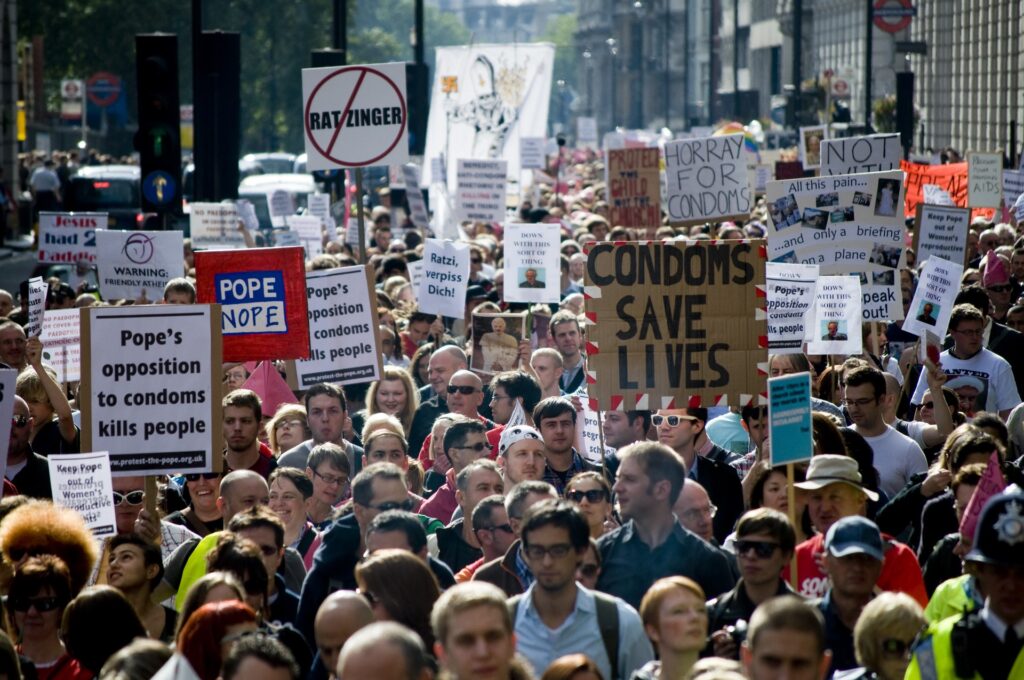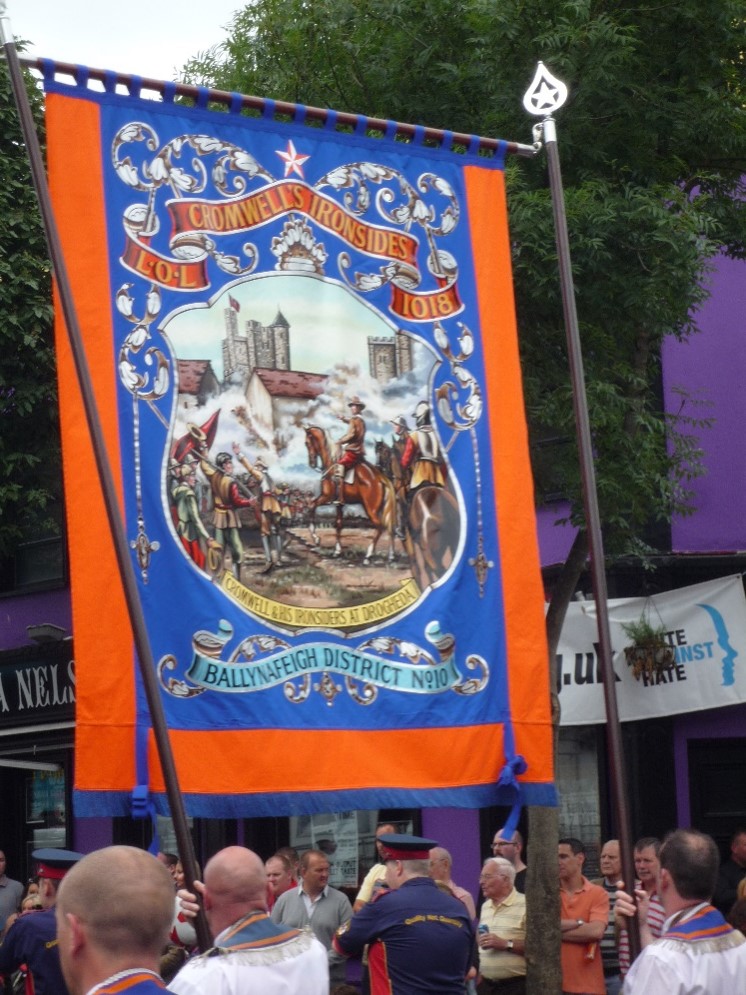By John Wolffe
At a time when there is rightly widespread concern about antisemitism and Islamophobia it may seem counter-intuitive to focus attention on a currently less conspicuous form of religious and anti-religious prejudice, anti-Catholicism. However, this is just what we shall be doing over the next three years with a grant from the Leverhulme Trust to explore ‘Anti-Catholicism in the UK since 1945: An Interdisciplinary Study of Prejudice’.
‘The last acceptable prejudice’ is the subtitle of a study by Philip Jenkins of anti-Catholicism in the present-day United States which raises significant questions for the UK. Jenkins argues that anti-Catholic prejudice remains widespread in America and is ‘acceptable’ because it is closely associated with otherwise liberal and progressive causes such as contraception, the rights of women and LGBTQIA+ people. Moreover, sexual abuse by Catholic priests is perceived as symptomatic of overall institutional failure and corruption. When Pope Benedict XVI made a state visit to Britain in September 2010, a ‘Protest the Pope’ rally in central London highlighted similar concerns.

While these issues appear highly contemporary, anti-Catholicism in Britain has a long history, dating back to the Reformation. Indeed, the very word ‘Protestant’ originated in that initial protest against the authority of the Papacy and the Catholic hierarchy. Our project focuses on the much more recent past but still covers a long period of enormous change, beginning with the immediate post-Second World War period, when the religious transformations of the 1960s including the Second Vatican Council still lay in the future. We will also be taking a ‘four nations’ approach, contrasting the normally more muted anti-Catholicism of England and Wales, with the more overt sectarianism notably evident in the ‘Old Firm’ rivalry of Celtic and Rangers in Scotland, and in the ongoing divisions between ‘Catholic’ and ‘Protestant’ communities in Northern Ireland. The latter are deeply rooted in Irish history, as illustrated by this Orange Order banner commemorating the siege of Drogheda by Oliver Cromwell’s forces in 1649.

Orange march, Belfast 12 July 2011, Photo: John Bell, used with permission.
The project will be a collaboration between two historians, myself and our newly-appointed colleague Dr Erin Geraghty, and a team of psychologists, including Prof Jovan Byford and Prof John Dixon. In bringing together historical and psychological approaches to the study of prejudice, we shall seek to develop deeper understanding of anti-Catholicism through exploring a variety of questions. How has the balance between ‘traditional’ Protestant anti-Catholicism and more contemporary secular anti-Catholicism shifted over the last eighty years? What exactly are those with anti-Catholic views opposed to? – Catholics as individuals, the Catholic Church as an institution, the Pope in particular? In what ways can people brought up as Catholics become anti-Catholic? How might we clarify the boundary between legitimate criticism of Catholicism on theological or moral grounds, and less rational prejudiced attitudes? What overt and more subtle forms does prejudice itself take? How do these differences help us to understand the diverse political and religious characteristics of different parts of the UK?
Our wider ambition is through the case study of anti-Catholicism to show how history, religious studies and psychology can complement each other in developing methodologies that enable us better to understand other forms of prejudice. We look forward to reporting on the progress of the project in future contributions to this blog.
